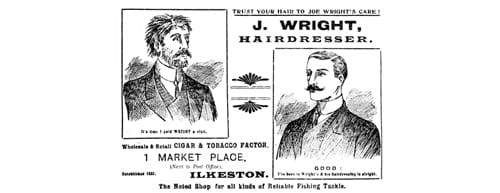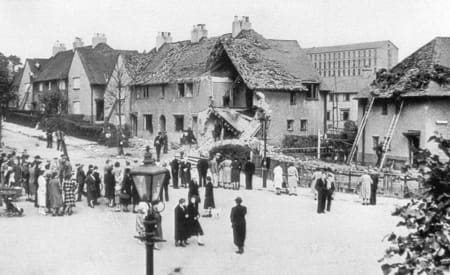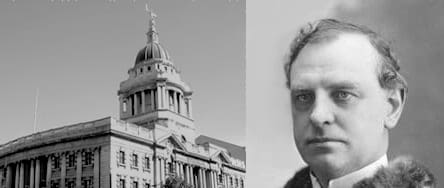Joseph Wright of Ilkeston 1861-1942
Joe Wright was a well known Ilkeston character at the beginning of the last century. Born on Christmas Eve, 1861 in a house off Bath Street, his parents were John Wright, a bricklayer’s labourer, and his wife Selina Skeavington. He worked at Oakwell colliery until a large explosion left him badly burned on the back and neck. His mother wouldn’t let him go ‘down the pit’ again and this forced Joe into hairdressing as a career – something he had been earning pocket money with in his spare time.
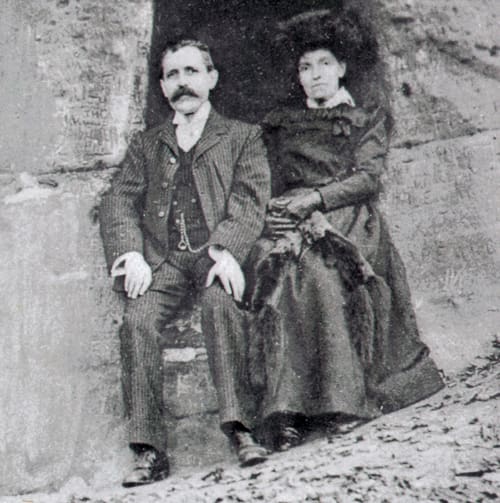
Aged sixteen, he was taken on by a barber on Alfreton Road, Nottingham. He “lived in” and was paid two shillings a week for working from 6am to 9pm during the week, 6am to 11.30pm on Saturdays and a half day on Sunday mornings. He returned to Ilkeston aged nineteen working for Mr Hithersay, who had a shop opposite what is now the library on South Street. In 1883 Mr Hithersay died and Joe bought the business.
Joe married Martha Ann Fernie on Christmas Day 1884 at Holy Trinity Church, Kimberley. He was 22 and Martha was 21. One year later, when they had set up house behind the shop, Martha gave birth to their first child and over the next few years twelve more children appeared, five boys and seven girls, one of whom (George Arthur Wright) was Mayor of Ilkeston in 1950-51. The second son, John Thomas (‘Jack’) Wright, was gassed in the Great War and died of the effects in 1925.
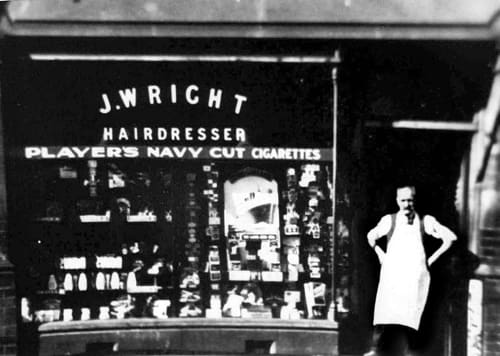
In 1903 the Ilkeston Co-op bought the original shop from Joe and he took over another shop further up the Market Place. When Wharncliffe Road was built, his new shop became the corner of the road’s junction with the Market Place and Joe extended the building to fit his expanding family.
A keen fisherman and gardener, Joseph was also an accomplished cyclist, and several times cycled to Skegness and back in a day. Like many men of the time, he enjoyed his beer and his pipe and his obituary says that he only had one half-day’s enforced holiday while self-employed. Business was fairly brisk and he would spend a lot of his time shaving customers in a time when few men shaved themselves. His shop became a meeting place, and Joe became a well known local character. Apparently he would lather a face and could shave it (with three broad strokes of a cut-throat razor) while saying that “Derby will win” – one word for each stroke.
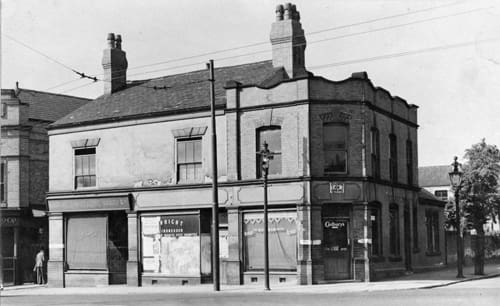
Joe retired in 1935, after celebrating his Golden Wedding with Martha, and sold the block of two shops to the [then] flourishing Ilkeston Co-op. The old building became derelict before being demolished four years later and part of the site was used in road widening. The rest of the site was used to build what later was known as the “Royal Regency Suite” and the Co-op department store. Joe and Martha retired to a new detached house which he had built on Oakwell Crescent, only a few hundred yards away, where Joseph enjoyed his garden and played with his many grandchildren.
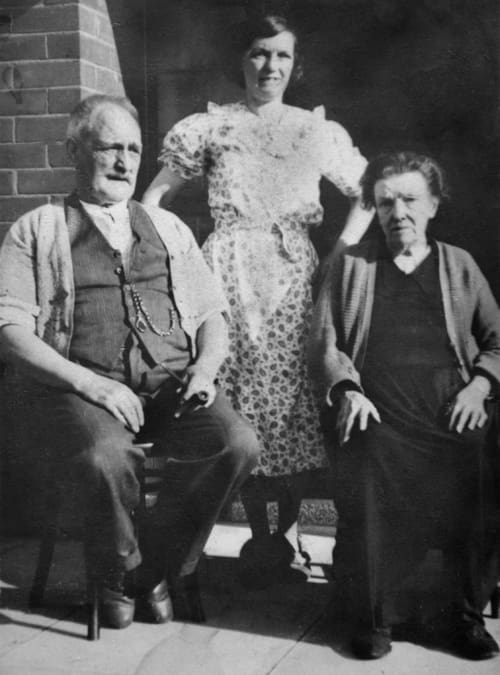
Joe died in 1942, aged 80 years, and Martha, always unwell in later years, sent a single rose from Joe’s garden with which he was buried, as she was too ill to attend the funeral. Within nine days she too was dead. They are buried together in Kirk Hallam Churchyard.

